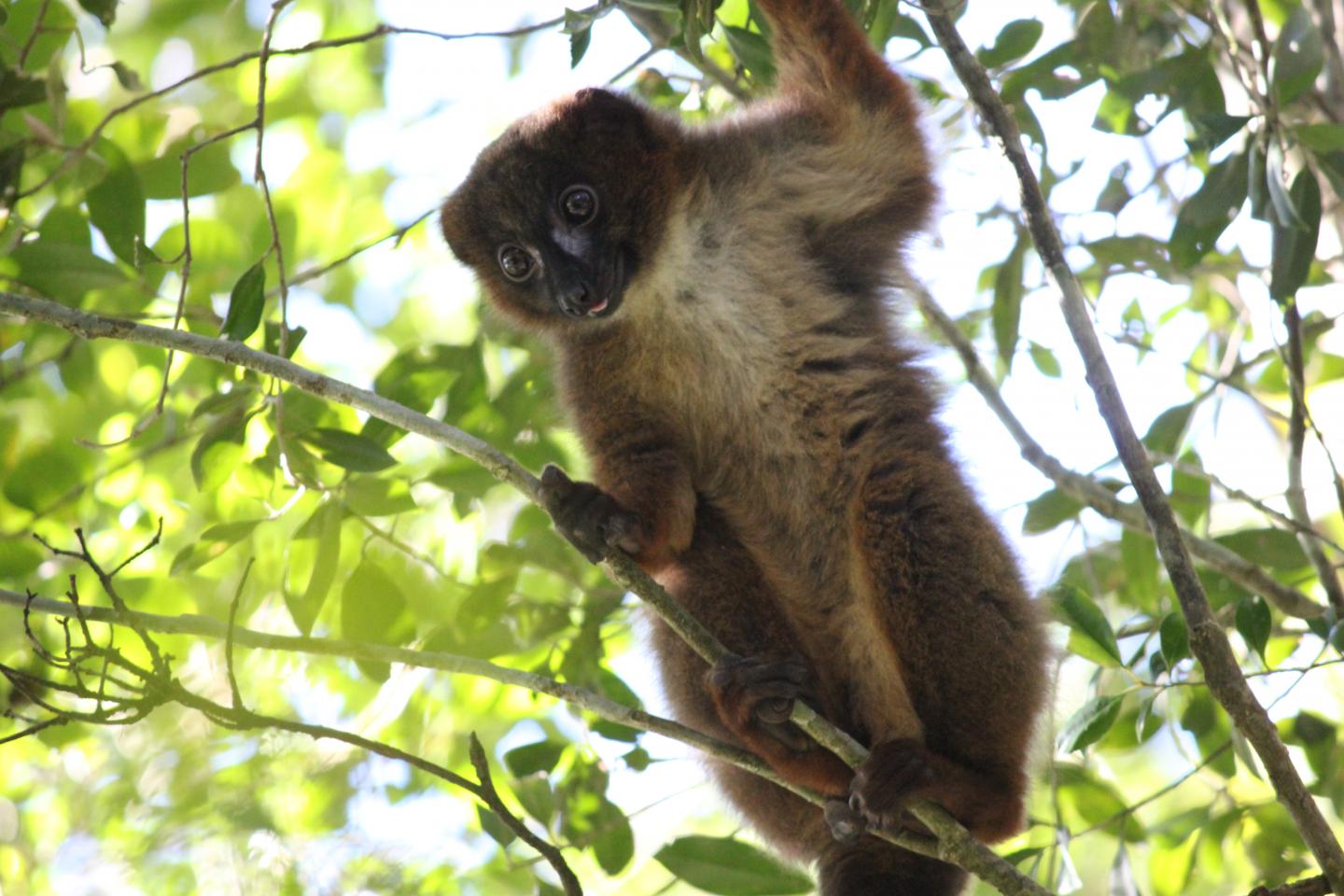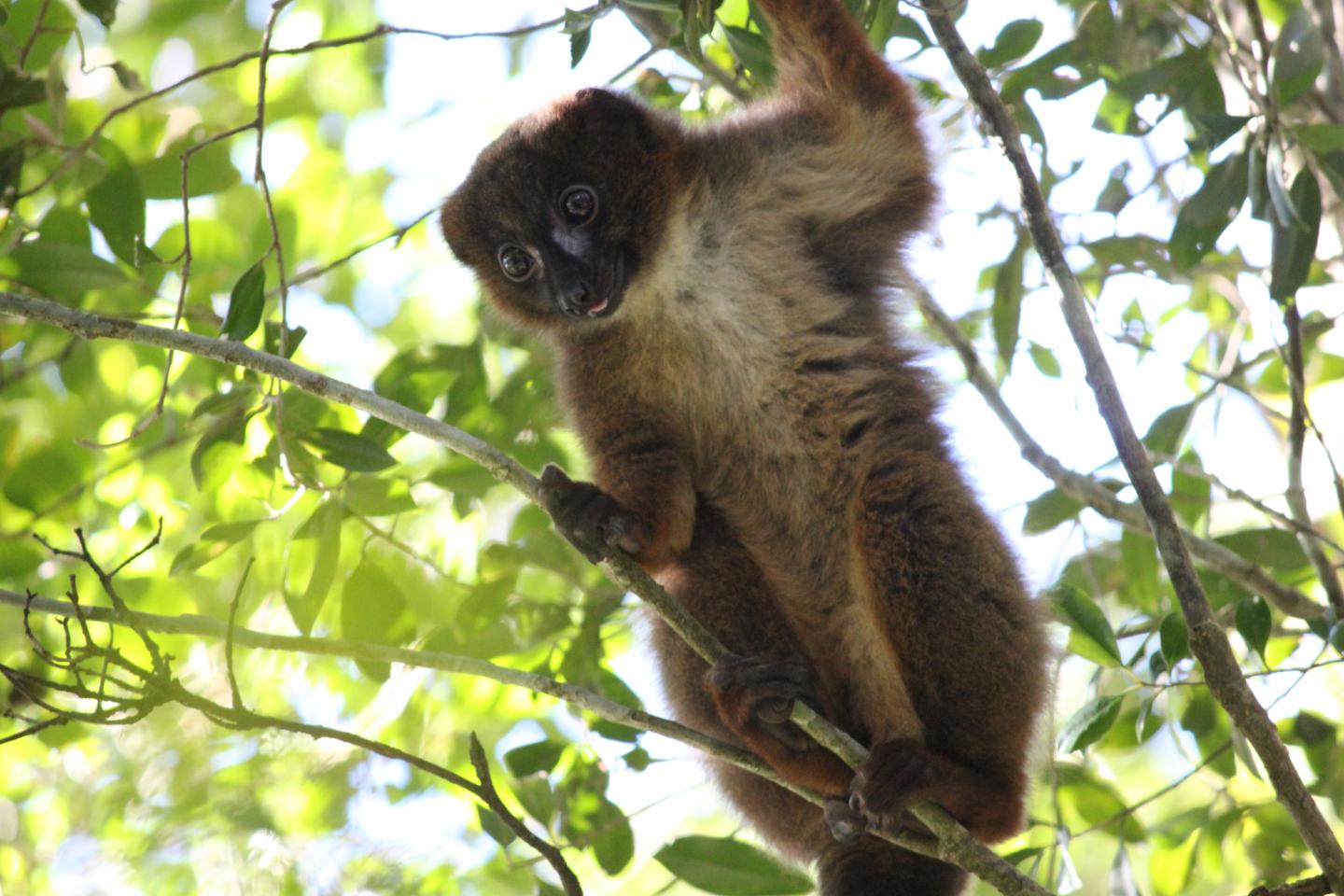
Credit: Courtesy of MSU
EAST LANSING, Mich. – New facial recognition software and app invented at Michigan State University can help protect endangered primates – more than 60 percent of which face extinction.
Golden monkeys have lost so much habitat, they are only found in a handful of national parks in Africa; farming and illegal hardwood trade in Madagascar is gobbling up the island's forests and displacing native lemurs; in a recent six-year span, more than 22,200 great apes have been lost due to illegal trade, and yet there have been only 27 arrests.
"Intervention is necessary to halt and reverse these population declines," said Anil Jain, MSU Distinguished Professor of computer science and engineering and senior author on the study. "Automated facial recognition is one way we can help combat these loses."
Jain and his doctoral student Debayan Deb harnessed the prowess of his world-renowned biometrics lab – which has helped solve high-profile crimes ¬- to create PrimNet. The program uses convolutional neural networks, artificial-intelligence inspired technology that allows everything from self-driving cars to robots to observe and understand our world.
The results, featured on Cornell University's arXiv, show that in head-to-head comparisons, PrimNet outperformed state-of-the-art face recognition systems, including SphereFace, FaceNet and LemurFaceID (a predecessor of PrimNet that Jain's lab also invented).
Along with improved accuracy, PrimNet represents a more cost-effective as well as a far less invasive approach to primate tracking. Traditional tracking devices can be expensive, ranging between $400 and $4,000. Capturing and tagging animals can be time-consuming and can adversely affect the animals. The process can disrupt social behavior, and it can cause stress, injury and sometimes even death.
To complement PrimNet, the team of scientists created an Android app, PrimID. Researchers in the field can now snap a photo of a golden monkey, drop it into the app and identify the primate in question with a high degree of confidence.
In many cases, PrimID will produce a match that's greater than 90 percent accurate. (With lemurs, PrimID scored an impressive 93.75 percent accuracy.) If it's not an "exact" match, the app will offer up to five potential candidates from the dataset, corresponding to the top five confidence ratings.
"We compared PrimID to our own benchmark primate recognition system and two, open-source human face recognition systems, and the performance of PrimNet was superior in verification one-to-one comparison and identification, or one-to-many comparisons, scenarios. Moving forward, we plan to enlarge our primate datasets, develop a primate face detector and share our efforts through open-source websites."
This invention, along with sharing it open sourced, provides another tool to offset wildlife trafficking. For example, if a captured great ape can be photographed and identified, knowing its origin can offer insights to its capture and help improve efforts to deter future crimes.
###
Additional MSU scientists who helped with this research, include: Debayan Deb, Sixue Gong, Yichun Shi and Cori Tymoszek. Susan Wiper, University of Chester (Great Britain), and Alexandra Russo, conservation biologist, also contributed to this study.
The scientists would like to thank the Duke Lemur Center, the Dian Fossey Gorilla Fund International and the Rwanda Development Board for their support.
Michigan State University has been working to advance the common good in uncommon ways for more than 150 years. One of the top research universities in the world, MSU focuses its vast resources on creating solutions to some of the world's most pressing challenges, while providing life-changing opportunities to a diverse and inclusive academic community through more than 200 programs of study in 17 degree-granting colleges.
For MSU news on the Web, go to MSUToday. Follow MSU News on Twitter at twitter.com/MSUnews.
Media Contact
LAYNE CAMERON
[email protected]
517-353-8819
@MSUnews
http://msutoday.msu.edu/journalists/
Original Source
https://msutoday.msu.edu/news/2018/msu-technology-and-app-could-help-endangered-primates-slow-illegal-trafficking/





